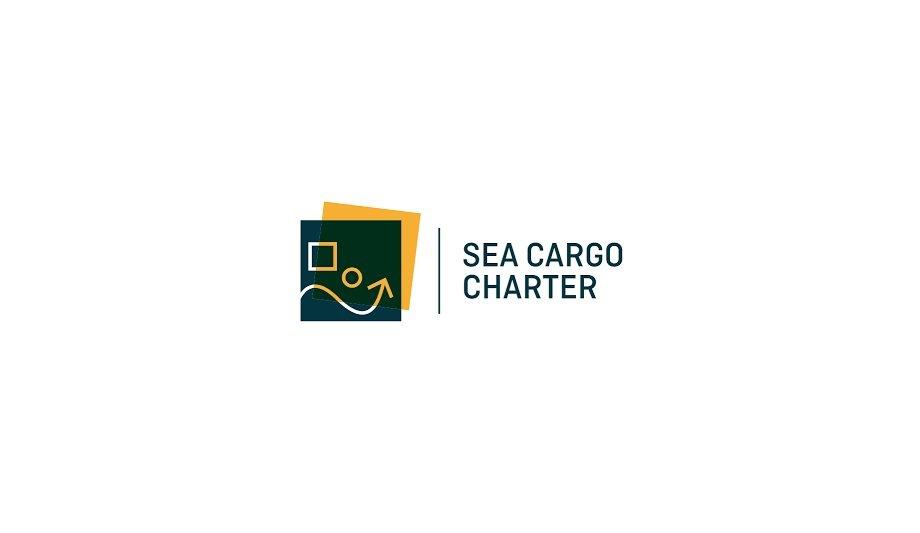The 33 Signatories, which disclose the climate alignment of their chartering activity for 2022, account for more than 17% of total bulk cargo transported by sea over the year. Their average reporting rate has increased since last year to 90%.
It is important to highlight, that it is not possible to compare the scores of individual Signatories to one another for several reasons: Signatories have different portfolios, different ship types and different numbers of voyages. Furthermore, the Signatories have different operational and trade profiles with particular trade characteristics that affect their annual activity alignment.
Sea Cargo Charter Annual Disclosure Report
In this second edition of the Sea Cargo Charter Annual Disclosure Report, the average climate alignment of Signatory companies is at the same level as in 2021 but the variation of data has decreased significantly. This is due to several reasons, including changes carried out to the chemical and liquified gas tanker baselines, as well as trade patterns and better operational efficiency.
Climate alignment of Signatory companies is at the same level as in 2021 but data reduced quite
“While achieving full decarbonisation by 2050 may seem far off, the maritime industry is well aware of the importance of decisions taken now in order to achieve this goal. The data in the Sea Cargo Charter report shows Signatories’ dedication to measuring and reporting transparently their climate impact as an essential first step towards reducing emissions,” says Rasmus Bach Nielsen, Chair of the Sea Cargo Charter Association and Global Head of Fuel Decarbonisation at Trafigura
Calls for ambitious MEPC80
“We would like to add our voice to those calling for ambitious targets on decarbonisation to be adopted at the IMO meeting to adopt a revised Strategy for Reduction of Greenhouse Gas Emissions from ships,” says Rasmus Bach Nielsen.
Nielsen hopes and believes the International Maritime Organisation (IMO) will agree on significantly more ambitious targets at the upcoming Marine Environment Protection Committee meeting (MEPC80) in July.
Importance of a regulatory framework
“Achieving these reduction targets is essential for the industry to play its role in addressing climate change, and it will require an appropriate policy framework that allows companies to take the commercial decisions needed to accelerate decarbonisation and it will also assist Sea Cargo Charter in establishing future enhanced baseline targets,” adds Bach Nielsen.
Signatories continued the ongoing discussion of how to make the reporting more robust
Bach Nielsen highlights the importance of a regulatory framework. “The key is that while it is fine to have big targets we also need a regulatory framework where it can be realistic to reach these,” he says.
At the association’s annual meeting in April, Signatories continued the ongoing discussion of how to make the reporting more robust and whether to raise the ambition level. However, many members were keen to wait for the outcome of the MEPC80 meeting, as the results will have big implications on the industry’s ability to deliver on the Paris Agreement temperature increase goal.
Complex scores
The simple average score of reporting Signatories in the Sea Cargo Charter report, i.e., all reported climate alignment scores calculated with equal weight, was 1.6% and the median was 2.7%. Without data on each Signatory’s total shipping activity, it was not possible to calculate a weighted average, which would be a more appropriate statistic to summarise the distribution of scores given that Signatories have different trades and levels of activity.
Scores ranged from − 21.8% to 21.4%, and 60% of reporting Signatories had a score of +5% or less. These alignment scores are based on an average reporting rate of 90% from Signatories of their annual activity. A negative score implies alignment while a positive score denotes misalignment to the decarbonisation trajectory.
Developing cooperation with business partners
“Our Signatories recognise that their role in the industry affords them opportunities to promote responsible environmental stewardship and drive change throughout the maritime value chain. The data in the report is thus a basis for further developing cooperation with shipping business partners. The data will provide insights that enhance our joint strategic decision-making and help us address climate change,” said Eman Abdalla, Vice Chair of the Sea Cargo Charter Association and Global Operations Director at Cargill Ocean Transportation
Eman Abdalla elaborates: “To make our voice louder, we are looking to open up our membership scope to not only charterers and cargo owners but also shipowners so that they can join us and make the Sea Cargo Charter a truly industry-wide initiative where we together unite and work towards one global transparent and standardised emission reporting system.”
According to Eman Abdalla, it ought to be in the interest of all industry stakeholders to have common alignment and transparency on emissions.












